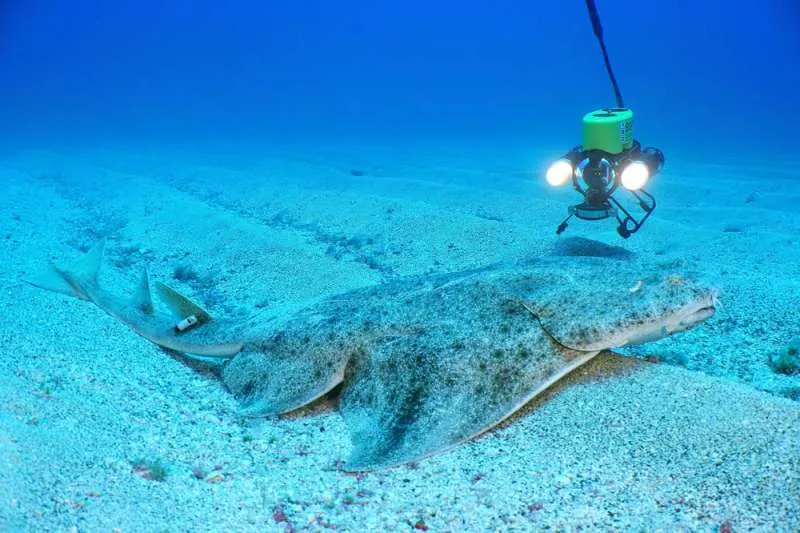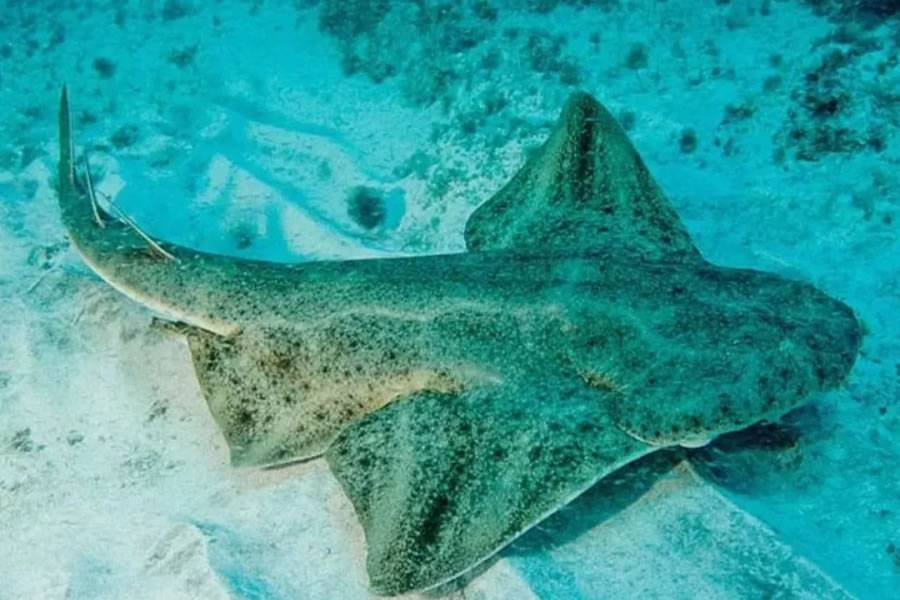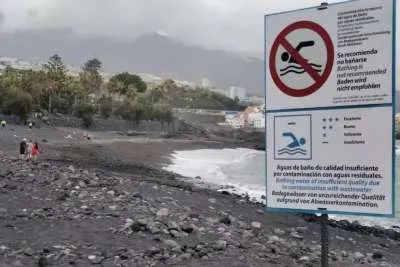Warming seas in the Canaries threaten breeding of critically endangered Angelshark
- 18-07-2025
- National
- Canarian Weekly
- Photo Credit: Angel Shark Conservation Network
Rising ocean temperatures around the Canary Islands are disrupting the mating behaviour of the Angelshark, a critically endangered species, sparking concern among conservationists about the long-term survival of this elusive marine predator.
A recent international study has revealed that female Angel sharks are avoiding traditional breeding grounds during unusually warm periods, prioritising cooler waters over mating opportunities. This behavioural shift, driven by extreme sea temperatures, could result in a mismatch in timing between males and females during the reproductive season, posing a serious threat to the species’ ability to reproduce effectively.
The research, led jointly by Lancaster University (UK) and the Angel Shark Project: Canary Islands, a collaboration between the Leibniz Institute for the Analysis of Biodiversity Change (Germany), University of Las Palmas de Gran Canaria (ULPGC), and ZSL (Zoological Society of London), used acoustic tracking devices to monitor Angelshark behaviour over a five-year period.
During the marine heatwave of 2022, surface temperatures in the La Graciosa Marine Reserve, Spain’s largest marine reserve, soared above 23.8°C, remaining above 22.5°C for nearly three times longer than in previous years. These conditions coincided with the Angelsharks' peak mating season, typically in late autumn and early winter, yet researchers found that females were largely absent from the usual breeding sites. Males, however, returned as expected in November, apparently undeterred by the warmer waters.
“Ocean Wildfires”
Lead researcher Professor David Jacoby, a zoologist at Lancaster University, likened the rising frequency and intensity of marine heatwaves to “wildfires of the ocean”, warning of their profound and unpredictable impacts on marine ecosystems.
“In the case of Angelsharks, we observed notable behavioural differences between sexes, with females being disproportionately affected by rising sea temperatures. Their absence from traditional mating grounds during prolonged warm periods is highly concerning,” he explained.
The Canary Islands: A Crucial Refuge
The Canary Islands lie at the southernmost edge of the Angelshark’s range and represent one of the last strongholds for the species, which is listed as Critically Endangered by the International Union for Conservation of Nature (IUCN). Both adult and juvenile Angel sharks are regularly observed in the region, making the species a flagship attraction for local dive tourism.
Recognisable by their flat, ray-like bodies and impressive camouflage, Angelsharks are ambush predators that feed on fish, rays, and invertebrates. Between 2018 and 2023, researchers tracked over 100 individuals and found that female presence is closely tied to water temperature. The study suggests that 22.5°C may be the upper thermal threshold for females to remain in key breeding areas.

A Worrying Trend
Data show a clear upward trend in sea temperatures, with the number of days exceeding 22.5°C rising from 30 days in 2019 to 85 days in 2022. Crucially, in 2022, the sea remained above this temperature well into late November, one month later than in previous years, spanning the entirety of the angel shark’s typical mating period.
The research indicates that female Angel sharks may be biologically more vulnerable to heat due to their higher metabolic demands during reproduction. By seeking cooler areas instead of mating grounds, they are likely prioritising their own physiological stability over reproduction.
A Threat to the Species’ Survival
Scientists fear that this breakdown in synchronised mating behaviour, a direct result of ocean warming, could drastically reduce reproductive success, posing a severe threat to an already fragile population.
The findings underscore the urgent need for climate-informed marine conservation strategies, especially in vulnerable ecosystems like the Canary Islands, where ocean warming may increasingly disrupt the life cycles of endangered species.
As Professor Jacoby concludes: “Understanding and responding to these changes is crucial if we are to safeguard the future of the Angelshark and the broader health of our marine environments.”
Other articles that may interest you...
Trending
Most Read Articles
Featured Videos
TributoFest: Michael Buble promo 14.02.2026
- 30-01-2026
TEAs 2025 Highlights
- 17-11-2025































































